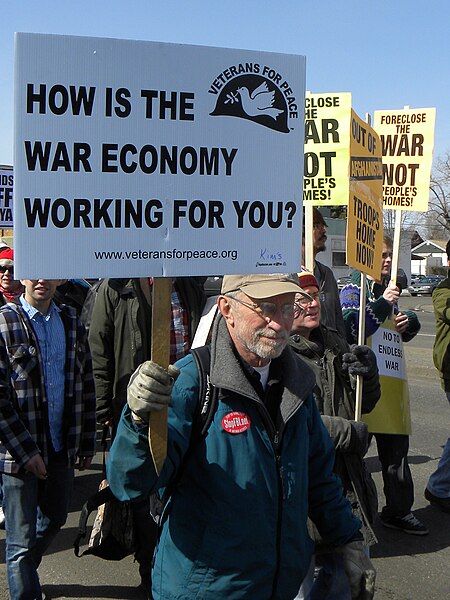
by Patricia Daniel
Do you know any veterans who were disabled in one of this country’s many wars? That injury affected them personally. Could they use some support in exercising the democratic values for which they fought–ask them if they would like help getting a ballot in November or demonstrating outside polling stations.
How about someone (perhaps yourself) who was the victim of sexual assault? Take it personally. Offer a ride to the polls.
What about those individuals whose economic and personal wellbeing has been undermined by the billions of dollars invested in warfare and foreign conflicts rather than in education, the environment, and health care? Talk to them about how they’ve been affected. Encourage them to vote.
Do you know people who feel so disenfranchised and despondent about the state of the world that they think voting doesn’t make a difference? Help them to understand that taking action helps to overcome despair—and that the most important action this fall is to get out and vote on November 6.
Who in your community has been affected by gun violence—your neighbor, the high school in the next town, the family going through divorce? These people have been forced to take gun violence personally. Get them to the polls. Learn about relevant ballot measures.
Do you know immigrants whose lives have been uprooted by government-sponsored hatred and family separation? They didn’t ask for maltreatment , but they have to take it personally. Make sure they are registered to vote.
We must take this election seriously, and personally. War and violence are not things that just happen in faraway lands and affect people we don’t know.
On the contrary, look around at people in your community and you will see that a large number of them have been affected by violence and injustice in some way. We can and must do something about it.
Learn about the candidates and issues. Share what you learn with others and ask them to exercise their democratic right to vote.
Many states have early voting and the polls are already open. Take advantage of this to help your friends and neighbors find the time and place to fit voting into their schedules. Start the conversation now and inspire others to engaged citizenry.
Take it personally. Get out the vote.
Note from Kathie MM: What are you doing to get out the vote? Please send us your action stories.
